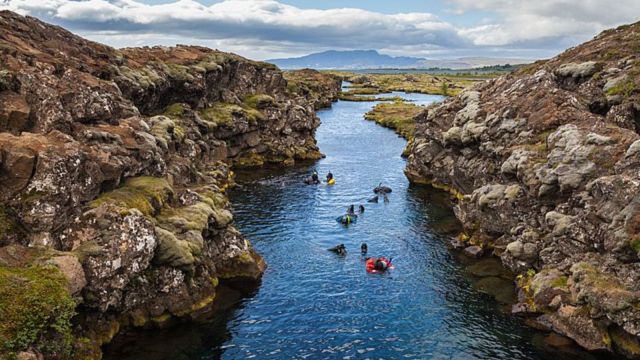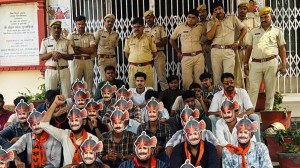Stay updated with the latest - Click here to follow us on Instagram
World’s 10 safest countries revealed: Iceland takes the top spot
The Global Peace Index (GPI) ranks countries using 23 indicators, from militarisation and external conflicts to homicide and terrorism.
 Iceland has retained its title of world’s most peaceful country since 2008. (Wikimedia Commons Photo)
Iceland has retained its title of world’s most peaceful country since 2008. (Wikimedia Commons Photo)In 2025, global peace feels increasingly fragile. Wars are intensifying, borders are tightening, and new conflicts are breaking out. According to the Global Peace Index (GPI), the number of state-based conflicts has reached its highest level since World War II, with three erupting this year alone, the Institute for Economics & Peace said.
Yet, amid this turmoil, some nations continue to stand out as global leaders in safety. The GPI ranks countries using 23 indicators, from militarisation and external conflicts to homicide and terrorism. The top performers have remained remarkably consistent, proving how long-term policies can foster stability and peace.
But peace is not just a statistic. It’s experienced in everyday life: walking home at night without fear, leaving doors unlocked, or trusting neighbours and institutions. The 2025 Global Peace Index shows the places where security is part of the culture.
India ranked 115th on the list, while Pakistan stood at 144. Russia was last among the 163 nations assessed.
Here are the countries that ranked at the top 10:
| Rank | Country |
| 1 | Iceland |
| 2 | Ireland |
| 3 | New Zealand |
| 4 | Austria |
| 5 | Switzerland |
| 6 | Singapore |
| 7 | Portugal |
| 8 | Denmark |
| 9 | Slovenia |
| 10 | Finland |
Iceland: The most peaceful country since 2008
Iceland retains its crown as the world’s most peaceful country, a title it has held since 2008, according to the BBC. It scored highest across all three domains of the index: safety and security, ongoing conflict, and militarisation.
For residents, this calm is part of daily life. “You can walk alone at night mostly without worry; you will see babies sleeping peacefully in prams outside cafes and shops while their parents enjoy a meal,” said Inga Rós Antoníusdóttir, a Reykjavík-born travel manager, in remarks to the BBC. “Local police don’t carry guns.”
Ireland: From conflict to stability
Once marked by internal conflict, Ireland is now among the world’s most secure nations, ranking high for reducing militarisation and minimising ongoing conflicts.
“The deep sense of community and friendliness makes you feel welcome and at ease, whether you’re in a small town or a big city,” said Jack Fitzsimons, a resident of Kildare, as reported by the BBC. Strong welfare systems, he added, help reduce inequality and tension.
Ireland also maintains military neutrality, remaining outside NATO while leveraging diplomacy on the global stage.
New Zealand: Safer and more connected
New Zealand climbed two spots this year thanks to improvements in safety and fewer terrorism-related impacts. Its island geography offers natural protection, but strict domestic policies reinforce security.
“New Zealand’s gun laws are among the strictest in the world, which absolutely contributes to the sense of safety,” said Mischa Mannix-Opie, a lifelong resident, as per BBC. Children walk to school, doors are often left unlocked, and motorists readily stop to help strangers.
“Beyond the postcard landscapes, New Zealand has real depth. The people are genuine, the Māori culture is rich, and the slower rhythm of life can really shift your perspective,” Mannix-Opie said.
Austria and Singapore
Austria slipped one place to fourth but remains one of the safest nations worldwide.
Singapore is the only Asian nation in the top 10, ranking high on safety and security despite significant military spending.
(With inputs from GPI report, BBC)
- 01
- 02
- 03
- 04
- 05





























